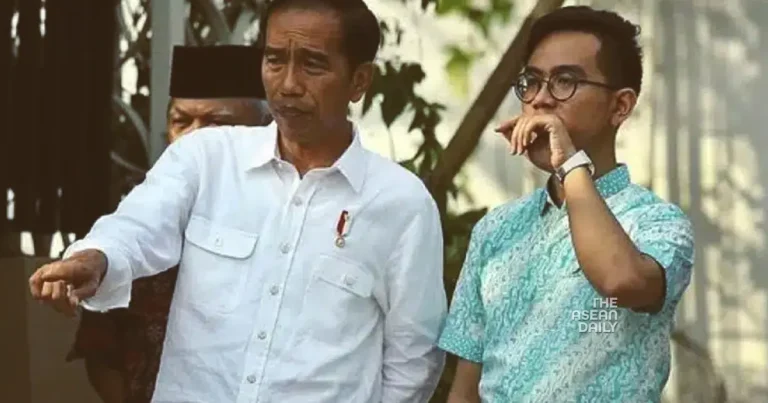25-10-2023 (JAKARTA) Indonesia’s President Joko Widodo is steadily expanding his family’s political dynasty by ushering his sons into positions of power. The recent announcement that his eldest son, Gibran Rakabuming Raka, will be defence minister Prabowo Subianto’s running mate in next year’s presidential election is the latest move cementing Widodo’s image as a Javanese kingmaker who can pull strings behind the scenes long after leaving office.
This development is disheartening for Indonesia’s developing democracy, the world’s third largest. Many Indonesians hoped Widodo would chart a different course and break from the nepotism of the past. Subianto will officially register his presidential candidacy this Wednesday.
To grasp the significance of Widodo’s transition, it helps to recall the man he used to be when we first met over a decade ago. Back then, chatting in a leafy park wearing crisp white linen and sandals, the Jakarta governor struck me as sincere and a disruptive force who could fix glaring issues within the political establishment. Widodo appeared genuinely motivated to instigate change as an outsider.
However, over time, that early idealism gave way to the practicalities of Indonesian politics. This included weakening the anti-corruption agency and drifting toward authoritarian tactics. Millions elected Widodo in 2014 believing he would break from the legacy of Suharto, the autocratic ruler who dominated Indonesia for over 30 years until his death in 2008.
Widodo’s victory was rightly celebrated as a milestone for Indonesian democracy, signalling that if a small-town furniture salesman could succeed, any outsider could. As one enthusiastic voter told me, the win meant old barriers had fallen. But as evidenced by Widodo’s family members assuming political posts, much has changed.
Beyond Raka’s vice-presidential bid, Widodo’s younger son Kaesang Pangarep, better known for his YouTube following than experience, became head of the Indonesia Solidarity Party last month to attract young voters. Additionally, son-in-law Bobby Nasution won election as Medan’s mayor in 2020 after campaigning on family ties suggesting he would get special treatment from Widodo’s administration.
While denying his family gains unfair advantage, Widodo justified relatives seeking office by arguing he cannot stop the public from voting for them if they choose. But even his steady popularity may not shield Widodo from anger at what looks like a resurgence of dynastic politics.
“Electing Raka will let Widodo keep wielding influence behind the scenes under Prabowo,” said Alexander Arifianto, a senior fellow at Singapore’s Institute of Defence and Strategic Studies. “Political dynasties are common in Indonesia but not that effective. They also invite backlash when done openly.”
That backlash has already begun following last week’s controversial court decision lowering minimum age requirements for presidential candidates with leadership experience, widely seen as clearing obstacles for Raka’s candidacy. The fact that Widodo’s brother-in-law Chief Justice Anwar Usman presided over the ruling added to perceptions of nepotism.
Widodo’s gradual shift from man of the people to pragmatic politician establishing a dynasty has prioritized economic growth over strengthening democratic institutions, often weakening them instead. When development initiatives clashed with anti-corruption efforts, he sided with the former, said Burhanuddin Muhtadi of Syarif Hidayatullah State Islamic University.
This developmental focus echoes Indonesia’s longest-serving leader, Suharto, also from Java. Now, in an ironic twist, Suharto’s former son-in-law Subianto has joined forces with Widodo’s son to potentially lead Indonesia next year. For many citizens who recall living under Suharto’s nepotistic New Order regime, this raises red flags about keeping power concentrated within families rather than serving the public interest.




